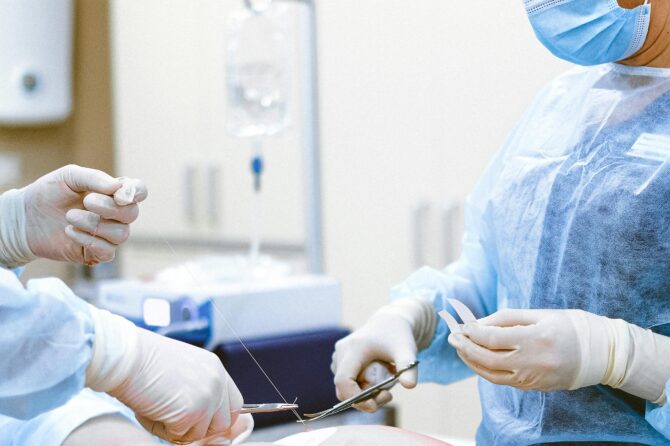
Plastic Surgeons Operating on Family: Where to Draw the Line
Key points
- Most professional guidelines advise against surgeons operating on family members.
- A poor result can lead to medical repercussions and hinder personal relationships.
- Most plastic surgeons reported they would operate on a spouse or other family member.
You’ve seen your surgeon family member carve the Thanksgiving turkey with precision, but would you trust them to carve you?
The decision to undergo plastic surgery is deeply personal, often influenced by aesthetics, self-esteem, and cultural norms. However, what happens when the hands wielding the scalpel belong to a trusted family member? While some view it as a comforting advantage, others argue that professional and ethical boundaries must be firmly upheld. This ethical conundrum raises pressing questions about the intersection of personal and professional obligations in the world of plastic surgery.
The Ethical Debate
Medical ethics strongly emphasize objectivity, professionalism, and patient well-being. The American Medical Association largely discourages physicians from treating family members, citing concerns about compromised judgment, emotional involvement, and the risk of complications. When emotions are intertwined with medical decisions, surgeons may struggle with making impartial choices regarding the necessity, extent, and risks of a procedure.
Plastic surgery, unlike many other medical fields, often involves elective procedures rather than urgent, life-saving interventions. Could a surgeon feel pressured to perform a procedure a family member does not truly need? Might they downplay risks to ease their loved one’s anxiety?
The Psychological Impact
Beyond ethical concerns, there are significant psychological implications. If a procedure yields less-than-ideal results, both the surgeon and the patient must navigate not just medical repercussions but also personal relationships. A dissatisfied patient might struggle with resentment or disappointment, leading to long-term strain in family dynamics. Conversely, a surgeon may experience overwhelming guilt if complications arise.
Moreover, family members may have unrealistic expectations, believing their surgeon-relative will provide extra attention or even superior results. This unrealistic pressure can create an emotionally charged operating room, increasing stress and reducing objectivity.
Where to Draw the Line
While some plastic surgeons may feel comfortable operating on relatives, most professional guidelines advise against it. Best practices suggest referring family members to a trusted colleague who can provide unbiased care. However, there are exceptions—some argue that in cases of minor, low-risk procedures, or when a highly skilled surgeon is the best available option, treating family might be acceptable. A previous study by Slavin et al. found that 88% of surveyed plastic surgeons reported they would operate on a spouse or other family member, and 84% reported they already had. Among this cohort, the main motivation for 67% of respondents was their belief that they were the best surgeon for the procedure.
Ultimately, surgeons must weigh their professional responsibilities against personal obligations. Open discussions, clear boundaries, and an unwavering commitment to ethical decision-making are crucial. Plastic surgeons must ask themselves: Can I remain objective? Will this decision serve my loved one’s best interest? If the answer is anything less than a confident yes, it may be best to step aside.
Would you want a family member to operate on you? Or is it better to keep personal and professional lives separate? The answer may not be black and white, but careful consideration is key to ensuring the best outcomes—both medically and personally.
See the blog originally posted on Psychology Today, co-authored by Dr. Amir Hakimi.
References
Slavin SA, Slavin SA, Goldwyn RM. A family operation: plastic surgeons who perform aesthetic surgery on spouses or other family members. Plastic and Reconstructive Surgery. 2010. 125(3):1018-1023.
